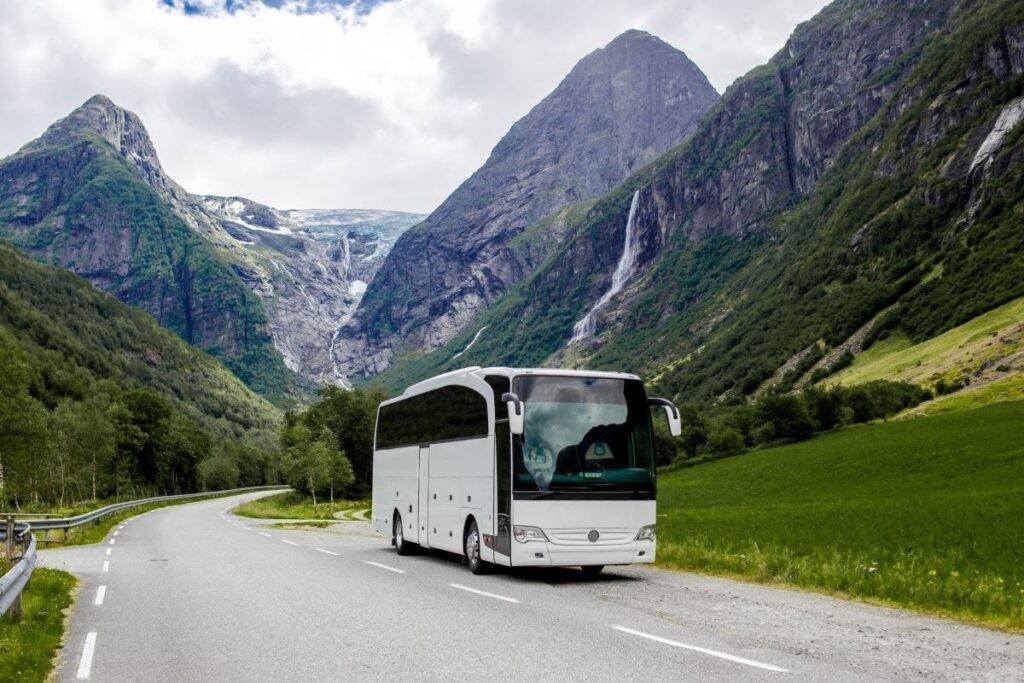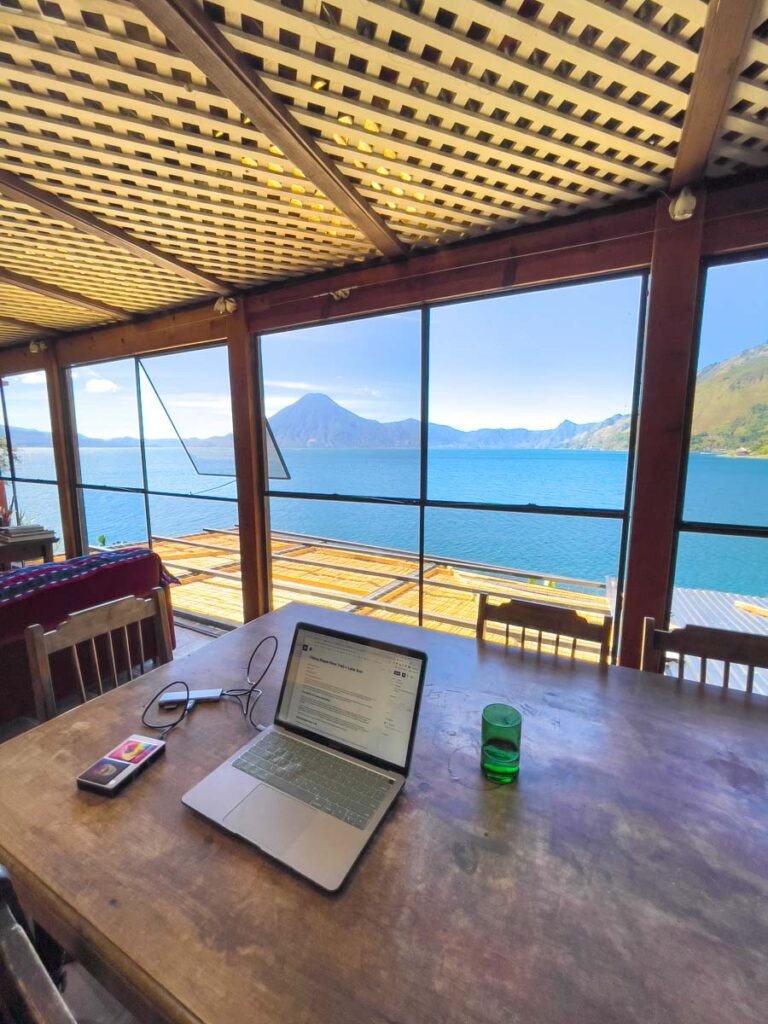Traveling through Europe doesn’t have to break the bank. With careful planning and savvy choices, you can experience the charm and culture of Europe without emptying your wallet. TRAVELS.EDU.VN is here to guide you on your affordable European adventure, offering expert advice and exclusive deals to make your dream trip a reality, opening up a world of cheap European travel. Discover cost-effective strategies, budget-friendly destinations, and insider tips for economical travel planning.
1. Understanding Your Travel Style and Budget
Before diving into the details, it’s crucial to understand your travel style and set a realistic budget. Consider what’s most important to you: Are you a luxury traveler willing to spend more for comfort and convenience, or are you happy with basic accommodations and public transportation to save money? Defining your priorities will help you make informed decisions throughout your trip.
1.1. Determining Your Daily Budget
Start by estimating your daily expenses. This includes accommodation, food, transportation, activities, and miscellaneous costs. Research average prices in your desired destinations to get a rough idea. A good starting point might be:
- Budget Traveler: $50 – $75 per day
- Mid-Range Traveler: $75 – $150 per day
- Luxury Traveler: $150+ per day
Remember, these are just estimates. Your actual costs will vary depending on your travel style and destination choices. Eastern Europe tends to be more affordable than Western Europe, so keep that in mind when planning your itinerary.
1.2. Identifying Your Priorities
What experiences are non-negotiable for you? Are you a foodie who wants to try local cuisine, a history buff who wants to visit museums, or an adventure seeker who wants to hike and explore the outdoors? Allocate a larger portion of your budget to these activities and find ways to save on less important aspects of your trip.
2. Planning Your Route for Budget-Friendly Travel
Choosing the right destinations and planning your route strategically can significantly impact your travel expenses.
2.1. Opting for Eastern Europe
Eastern Europe is generally more affordable than Western Europe. Countries like Poland, Hungary, Czech Republic, Romania, and Bulgaria offer a rich history, stunning landscapes, and vibrant culture at a fraction of the cost.
| Country | Average Daily Cost (USD) | Key Attractions |
|---|---|---|
| Poland | $50 – $70 | Krakow Old Town, Auschwitz-Birkenau, Warsaw |
| Hungary | $45 – $65 | Budapest Thermal Baths, Hungarian Parliament Building, Danube River |
| Czech Republic | $55 – $75 | Prague Castle, Charles Bridge, Old Town Square |
| Romania | $40 – $60 | Transylvania Castles, Carpathian Mountains, Bucharest |
| Bulgaria | $35 – $55 | Black Sea Coast, Rila Monastery, Sofia |
2.2 Consider the Balkans for your Trip
The Balkan region offers a mix of cultures, stunning coastlines, and historic sites. The cost of traveling through the Balkans can be significantly lower than Western Europe, particularly in countries like Albania, North Macedonia, and Bosnia and Herzegovina.
- Albania: Known for its rugged mountains, pristine beaches, and archaeological sites.
- North Macedonia: Offers ancient cities, lakes, and hiking trails, with a rich cultural heritage.
- Bosnia and Herzegovina: Famous for its historical landmarks like the Stari Most bridge in Mostar and the capital city of Sarajevo.
2.3. Visiting Lesser-Known Cities and Regions
Instead of sticking to the popular tourist hotspots, consider exploring smaller cities and regions that offer a more authentic experience and lower prices. For example, consider visiting:
- Instead of Paris: Lyon, France
- Instead of Rome: Naples, Italy
- Instead of Barcelona: Valencia, Spain
- Instead of Amsterdam: Rotterdam, Netherlands
2.4. Traveling During the Shoulder Season
The shoulder season (April-May and September-October) offers a sweet spot between pleasant weather, fewer crowds, and lower prices. You’ll find better deals on flights and accommodation, and you’ll have a more enjoyable experience without the hordes of tourists.
 Beach Love Spain People
Beach Love Spain People
2.5. Utilizing a Europe Trip Planner
The best way to plan a cheap trip to Europe is to utilize a Europe trip planner. This trip planner enables you to organize all of your trip details efficiently, which can ultimately help to save money.
3. Transportation: Getting Around Europe on a Budget
Transportation can be a significant expense, but there are several ways to reduce costs and travel Europe affordably.
3.1. Flying with Budget Airlines
Europe is home to numerous budget airlines like Ryanair, EasyJet, Vueling, and Wizz Air. These airlines offer incredibly low fares, especially if you book in advance and are flexible with your travel dates.
- Ryanair: Known for its extensive network and ultra-low fares, but be aware of extra fees for baggage and seat selection.
- EasyJet: Another popular option with a wide range of destinations and competitive prices.
- Vueling: Focuses on routes within Spain and Europe, offering affordable options for exploring the region.
- Wizz Air: Specializes in flights to Central and Eastern Europe, making it a great choice for budget travelers heading east.
3.2. Taking Advantage of Train Travel
Train travel in Europe is a scenic and convenient way to get around, especially if you’re traveling between major cities. Consider purchasing a Eurail pass if you plan to travel extensively by train.
- Eurail Pass: Offers unlimited travel on trains in participating countries, but it’s essential to calculate whether the pass is more cost-effective than individual tickets.
- Regional Passes: If you’re only planning to explore a specific region, consider purchasing a regional pass for unlimited travel within that area.
- Advance Booking: Booking train tickets in advance can often save you money, especially on high-speed routes.
3.3. Opting for Buses
Buses are often the cheapest way to travel between cities, especially for long distances. Companies like Flixbus and Busbud offer affordable fares and comfortable coaches with amenities like Wi-Fi and power outlets.
- Flixbus: Offers an extensive network of routes across Europe, with fares often starting as low as $5.
- Busbud: A search engine that compares prices from multiple bus companies, allowing you to find the best deals.
 Tourist Bus in Norway
Tourist Bus in Norway
3.4. Considering Carpooling
Carpooling services like BlaBlaCar connect drivers with passengers heading in the same direction, offering a cheap and social way to travel. It’s a great option for solo travelers looking to save money and meet new people.
3.5. Walking and Cycling
Whenever possible, walk or cycle to explore cities and towns. It’s a great way to save money, get some exercise, and discover hidden gems that you might miss on public transportation.
3.6. Transportation Tip for Europe
If you’re looking for bus, boat, or train tickets around Europe, you can easily book them online.
4. Accommodation: Finding Affordable Places to Stay
Accommodation is another significant expense, but there are plenty of ways to find budget-friendly options.
4.1. Hostels
Hostels offer dorm-style accommodation at a fraction of the cost of hotels. They’re a great option for solo travelers and backpackers looking to meet new people and save money.
4.2. Guesthouses and Budget Hotels
Guesthouses and budget hotels offer private rooms at affordable prices. Look for options outside the city center, which tend to be cheaper.
4.3. Airbnb and Vacation Rentals
Airbnb and vacation rentals can be a great option for families or groups traveling together. You can often find apartments or houses with kitchens, allowing you to save money on meals.
4.4. Couchsurfing
Couchsurfing connects travelers with locals who are willing to offer free accommodation in their homes. It’s a great way to experience local culture and save money on accommodation.
4.5. Work Exchanges and Volunteering
Work exchanges and volunteering programs like Worldpackers and Trusted Housesitters offer free accommodation in exchange for your time and skills. It’s a great way to travel long-term and immerse yourself in local communities.
- Worldpackers: Offers a platform to connect with hosts around the world, offering accommodation in exchange for volunteering work.
- Trusted Housesitters: Provides a platform to find house-sitting opportunities, allowing you to stay in homes for free while taking care of pets.
 Do a Worldpackers experience to travel on a budget.
Do a Worldpackers experience to travel on a budget.
4.6. Camping
Camping is a budget-friendly option for nature lovers. Europe has numerous campsites, ranging from basic to luxurious, offering a variety of amenities.
5. Food and Drink: Eating and Drinking Cheaply in Europe
Food and drink can quickly add up, but there are several ways to enjoy local cuisine without breaking the bank.
5.1. Cooking Your Own Meals
If you’re staying in accommodation with a kitchen, cook your own meals whenever possible. Visit local markets and supermarkets to buy fresh ingredients at affordable prices.
5.2. Eating Street Food
Street food is a delicious and affordable way to sample local cuisine. Look for food stalls and markets offering local specialties at reasonable prices.
5.3. Taking Advantage of Lunch Specials
Many restaurants offer lunch specials at discounted prices. It’s a great way to enjoy a sit-down meal without paying dinner prices.
5.4. Drinking Local Wine and Beer
Local wine and beer are often cheaper than imported brands. Look for local wineries and breweries offering tastings at affordable prices.
5.5. Avoiding Tourist Traps
Restaurants and bars in tourist areas tend to be more expensive and offer lower-quality food and service. Venture off the beaten path to find more authentic and affordable options.
5.6. Considering Picnic Lunches
Instead of eating at expensive restaurants, pack a picnic lunch and enjoy it in a park or scenic spot. This is a great way to save money and enjoy the beautiful European scenery.
5.7 Free Food Tours
Consider free food tours if you are looking to sample some of the local food. While free, a tip is usually expected at the end.
6. Activities and Attractions: Experiencing Europe on a Shoestring
There are plenty of free and affordable activities and attractions in Europe, allowing you to experience the culture and history without spending a fortune.
6.1. Free Walking Tours
Many cities offer free walking tours led by knowledgeable locals. It’s a great way to learn about the history and culture of the city without paying a fee.
6.2. Visiting Free Museums and Attractions
Many museums and attractions offer free admission on certain days or during certain hours. Check the websites of the attractions you want to visit to see if they offer free admission.
6.3. Exploring Parks and Gardens
Europe is home to numerous beautiful parks and gardens that offer free admission. It’s a great way to relax, enjoy nature, and take in the scenery.
6.4. Hiking and Biking
Europe has numerous hiking and biking trails, offering stunning views and a great way to explore the outdoors. Many trails are free to use, and you can rent bikes at affordable prices.
 Hiking the Swiss Alps
Hiking the Swiss Alps
6.5. Attending Free Events and Festivals
Many cities host free events and festivals throughout the year, offering a glimpse into local culture and traditions. Check local event listings to see what’s happening during your trip.
6.6. Using City Passes
Many cities offer city passes that provide free admission to multiple attractions and discounts on transportation and other services. It’s essential to calculate whether the pass is more cost-effective than paying for individual attractions.
6.7. Enjoying Free Cultural Events
Attend free cultural events such as concerts, art exhibitions, and local festivals to experience Europe’s rich culture without spending money.
6.8 Look for Discounted Activities Online
A number of discounted activities can be found when planning your trip to Europe. Prior to heading to Europe, be sure to check out the various discounts.
7. Travel Insurance: Protecting Your Budget and Health
Travel insurance is essential for any trip, but especially for budget travelers. It can protect you from unexpected costs due to medical emergencies, lost luggage, or trip cancellations.
7.1. Choosing a Budget-Friendly Policy
Compare prices from different travel insurance providers to find a policy that fits your budget. Look for a policy that covers medical expenses, trip cancellations, and lost luggage. SafetyWing’s travel insurance is a great option to keep you covered as you explore.
7.2. Considering an Annual Policy
If you travel frequently, consider purchasing an annual travel insurance policy. It can be more cost-effective than buying individual policies for each trip.
7.3 Importance of Travel Insurance
When traveling on a budget, travel insurance is even more crucial. If faced with medical issues or flight cancellations, travel insurance may be able to alleviate the financial burden that may occur.
8. Staying Connected: Finding Affordable Internet Access
Staying connected is essential for navigating new cities, booking accommodation, and staying in touch with friends and family.
8.1. Using Free Wi-Fi
Many cafes, restaurants, and public spaces offer free Wi-Fi. Take advantage of these options to save money on data charges.
8.2. Purchasing a Local SIM Card
Purchasing a local SIM card can be a cost-effective way to stay connected, especially if you plan to use a lot of data. Look for prepaid plans that offer affordable data rates.
8.3. Utilizing eSIMs
Consider using eSIMs for data while you travel. They eliminate the need to hunt down a SIM card or pay insane roaming fees.
9. Money Management: Maximizing Your Euros
Effective money management is crucial for traveling Europe on a budget.
9.1. Using Credit Cards with No Foreign Transaction Fees
Use credit cards that don’t charge foreign transaction fees to avoid paying extra charges on your purchases.
9.2. Withdrawing Cash from ATMs
Withdraw cash from ATMs to get the best exchange rates. Avoid using currency exchange services, which often charge high fees.
9.3. Tracking Your Expenses
Keep track of your expenses using a budgeting app or spreadsheet. It will help you stay within your budget and identify areas where you can save money.
9.4. Setting Daily Spending Limits
Set daily spending limits to avoid overspending. It will help you make conscious decisions about your purchases and prioritize your spending.
9.5. Negotiating Prices
In some countries, it’s acceptable to negotiate prices, especially at markets and independent shops. Don’t be afraid to haggle for a better deal.
10. Booking Your Flights and Accommodation with TRAVELS.EDU.VN
At TRAVELS.EDU.VN, we understand the importance of affordable travel. We offer exclusive deals and discounts on flights and accommodation, making it easier than ever to travel through Europe on a budget. Our team of travel experts is dedicated to providing you with the best advice and support, ensuring that your trip is both memorable and affordable.
10.1. Contact Us for Personalized Travel Planning
Contact TRAVELS.EDU.VN today at 123 Main St, Napa, CA 94559, United States or Whatsapp: +1 (707) 257-5400, or visit our website at TRAVELS.EDU.VN to start planning your dream trip to Napa Valley. Let us help you create an unforgettable experience that fits your budget and exceeds your expectations.
10.2. Understanding the Perks of TRAVELS.EDU.VN
We provide exclusive deals, discounts, and travel advice so that your trip is both memorable and affordable. With a focus on customer satisfaction, you will have access to the best advice and support to ensure you have an unforgettable travel experience.
11. Europe On A Budget: Other Tips To Keep In Mind
There are a number of other tips to keep in mind to ensure you are able to experience Europe on a budget.
11.1. Plan your trip in advance
When planning your trip to Europe, planning it in advance is essential. In addition to flights and accommodations, it can enable you to avoid expensive last-minute prices.
11.2. Look for free activities
When planning activities, be sure to research activities that are free of charge. This can include museums and parks.
11.3. Purchase food at the local market
Purchasing food at the local market can enable you to not only experience the culture of Europe but also save money along the way.
11.4. Be flexible
Being flexible with your travel plans is essential. When it comes to travel, a number of variables can occur, so it’s important to have a Plan B.
12. Frequently Asked Questions (FAQ) About Traveling Through Europe Cheap
Here are some frequently asked questions about traveling through Europe on a budget:
-
What is the cheapest time to travel to Europe?
- The cheapest time to travel to Europe is during the shoulder season (April-May and September-October) or the winter months (November-March).
-
Which countries in Europe are the most affordable to visit?
- Eastern European countries like Poland, Hungary, Czech Republic, Romania, and Bulgaria are generally more affordable than Western European countries.
-
How can I find cheap flights to Europe?
- Use flight comparison websites like Skyscanner and Google Flights to find the best deals. Be flexible with your travel dates and consider flying with budget airlines.
-
What is the best way to get around Europe on a budget?
- Train travel, buses, and carpooling are all affordable ways to get around Europe. Consider purchasing a Eurail pass or booking tickets in advance for the best deals.
-
How can I find affordable accommodation in Europe?
- Hostels, guesthouses, Airbnb, and Couchsurfing are all budget-friendly accommodation options. Consider work exchanges and volunteering programs for free accommodation.
-
How can I save money on food and drink in Europe?
- Cook your own meals, eat street food, take advantage of lunch specials, and drink local wine and beer to save money on food and drink.
-
Are there any free activities and attractions in Europe?
- Yes, many cities offer free walking tours, free museums, parks, and gardens. Check local event listings for free events and festivals.
-
Do I need travel insurance for Europe?
- Yes, travel insurance is essential for protecting yourself from unexpected costs due to medical emergencies, lost luggage, or trip cancellations.
-
How can I stay connected in Europe without spending a fortune?
- Use free Wi-Fi, purchase a local SIM card, or use eSIMs to stay connected without paying high roaming charges.
-
What are some tips for managing my money while traveling in Europe?
- Use credit cards with no foreign transaction fees, withdraw cash from ATMs, track your expenses, and set daily spending limits to manage your money effectively.
By following these tips and utilizing the resources available at travels.edu.vn, you can travel through Europe on a budget and create unforgettable memories without breaking the bank. Contact us today to start planning your affordable European adventure.